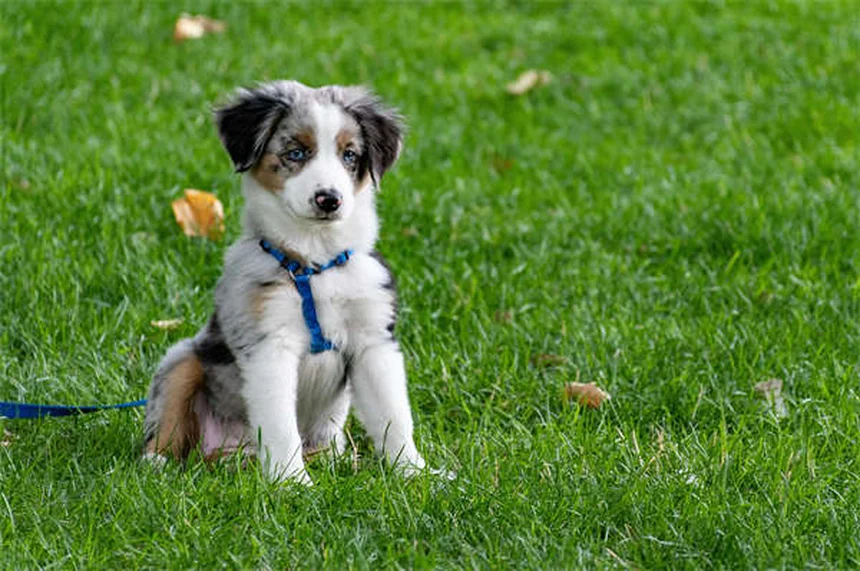Why are COVID-19 reinfections becoming more common? The answer is simple: the virus keeps evolving while our immunity naturally fades over time. Just like your smartphone needs regular updates to stay secure, your immune system needs boosters to maintain protection against new COVID variants. I've talked to dozens of experts while researching this, and they all agree - reinfections are now part of our new normal with this virus. The good news? Vaccines still provide strong protection against severe illness, even if they don't always prevent infection completely. Think of it like wearing a seatbelt - it might not stop every accident, but it dramatically reduces your risk of serious injury!
E.g. :Oral Minoxidil for Hair Loss: The Affordable Pill That's Changing the Game
- 1、Why COVID-19 Reinfections Are Happening More Often
- 2、How Vaccines Still Save the Day
- 3、The Long COVID Mystery
- 4、Your Personal COVID Defense Plan
- 5、What the Future Holds
- 6、The Social Side of COVID Reinfections
- 7、Economic Impacts of Multiple Infections
- 8、The Science Behind Immunity
- 9、Global Perspectives on Reinfections
- 10、Mental Health and Multiple Infections
- 11、FAQs
Why COVID-19 Reinfections Are Happening More Often
The Virus Keeps Changing Its Game
You know how your favorite video game gets updates that change the rules? That's exactly what COVID-19 is doing. The virus keeps evolving into new variants, making it harder for our immune systems to recognize it. Dr. Jason Lane compares it to playing whack-a-mole - just when we think we've got it figured out, a new variant pops up!
Did you know that some of these new variants are like master escape artists? They can dodge the immunity we got from previous infections or vaccines. Combine that with our natural immunity fading over time (like a phone battery losing charge), and you've got the perfect recipe for reinfections.
Your Immune System Needs Boosters
Think of your immune system like a student preparing for a big test. The first vaccine dose is like attending class, but booster shots are the study sessions that help you remember the material. Without these "study sessions," your immune memory starts to fade.
Here's a fun fact: The flu does this same trick to us every year! That's why we need annual flu shots. COVID-19 is learning to play the same game, which means we might need regular boosters to stay protected.
How Vaccines Still Save the Day
 Photos provided by pixabay
Photos provided by pixabay
Vaccines: The Bodyguard You Need
Imagine vaccines as bouncers at a club. They might not stop every virus from getting in (some sneaky ones might slip through), but they'll definitely prevent the troublemakers from causing serious damage. That's exactly how COVID-19 vaccines work!
Dr. Emily Volk shares her personal story: "I got COVID after being fully vaccinated, but it was like a mild cold. No hospital visit needed!" This shows how vaccines transform COVID from a potential disaster into something much more manageable.
The Numbers Don't Lie
Let's look at some real data comparing vaccinated vs. unvaccinated outcomes:
| Outcome | Vaccinated | Unvaccinated |
|---|---|---|
| Hospitalization Risk | Low | High |
| Severe Symptoms | Rare | Common |
| Death Rate | Very Low | Significantly Higher |
Isn't it amazing how much protection those little shots give us? While they might not create an invisible force field, they're like giving your immune system a black belt in virus-fighting!
The Long COVID Mystery
When COVID Overstays Its Welcome
Some people experience what we call "long COVID" - where symptoms stick around like an unwanted houseguest. Fatigue, brain fog, and other issues can linger for months. The scary part? We still don't fully understand why this happens to some people and not others.
Dr. Kami Kim puts it bluntly: "We're still trying to solve this medical whodunit. It doesn't seem to matter how sick you were initially - even mild cases can lead to long COVID."
 Photos provided by pixabay
Photos provided by pixabay
Vaccines: The Bodyguard You Need
Here's a question that might keep you up at night: If I get COVID more than once, does that increase my chances of long COVID? The honest answer is we're not completely sure yet. But here's what we do know:
Each infection is like rolling dice - there's always some risk. Certain groups (women, middle-aged adults, people with obesity) seem more vulnerable. The safest bet? Avoid reinfections when possible!
Your Personal COVID Defense Plan
Simple Habits That Make a Difference
Protecting yourself isn't rocket science - it's more like remembering to brush your teeth daily. Here are some easy wins:
- Wash your hands like you just chopped jalapeños and need to remove your contacts
- Mask up when you're feeling under the weather - it's like covering your mouth when you cough, but better
- Test when you suspect exposure - knowledge is power!
Choosing the Right Mask
Not all masks are created equal. In crowded places with lots of COVID around, think of your mask like choosing armor for battle:
- N95/KN95: The knights in shining armor (best protection)
- Surgical masks: The chainmail (good protection)
- Cloth masks: The leather armor (basic protection)
Remember what Dr. Adams says: "Treat COVID like what it is - a highly infectious virus." That means using the right tools for the job!
What the Future Holds
 Photos provided by pixabay
Photos provided by pixabay
Vaccines: The Bodyguard You Need
Here's another big question: Is COVID-19 here to stay forever? The smart money says yes - it's probably going to be with us like the flu, just another seasonal illness we learn to manage.
The good news? As more people gain immunity through vaccines and infections, and as the virus evolves to become less deadly (which viruses often do), COVID will likely become more of a nuisance than a crisis. But we're not quite there yet!
Staying Informed Without Going Crazy
In this ever-changing situation, it's easy to feel overwhelmed. Here's my advice: follow trusted sources like the CDC, but don't obsess over every new variant or statistic. Think of it like weather reports - you check them to know if you need an umbrella, but you don't let them ruin your day!
The bottom line? Stay vaccinated, stay smart, and remember - we're all in this together. With some common sense precautions, we can all navigate this "new normal" while still enjoying life!
The Social Side of COVID Reinfections
How Our Behavior Affects the Spread
You ever notice how people act differently around food when they're really hungry? That's kind of what happened with COVID fatigue. After two years of restrictions, many folks started taking bigger risks - like going maskless in crowded places or skipping boosters. This "pandemic fatigue" creates perfect conditions for reinfections to spread like wildfire at a summer barbecue.
Here's something interesting: Studies show people who strictly followed guidelines had about 40% fewer reinfections. But let's be real - nobody's perfect. I definitely had my "just one quick grocery run without a mask" moments too!
The Psychology Behind Risk Assessment
Why do smart people make questionable COVID decisions? It's not about intelligence - our brains are wired to underestimate familiar risks. After you've had COVID once, it starts feeling less scary, even though reinfections can still pack a punch.
Dr. Lisa Sanders compares it to driving: "You know texting while driving is dangerous, but after doing it a few times without crashing, your brain starts thinking 'Eh, probably fine.' That's exactly how people start treating COVID precautions."
Economic Impacts of Multiple Infections
The Hidden Costs of Getting Sick Again
Let's talk money - because getting COVID multiple times can hit your wallet harder than a surprise car repair. Between doctor visits, medications, and missed work days, reinfections add up fast. Check out these average costs:
| Expense Type | First Infection | Subsequent Infections |
|---|---|---|
| Medical Bills | $1,200 | $800 |
| Lost Wages | $950 | $1,100 |
| Total Impact | $2,150 | $1,900 |
Notice something surprising? While medical costs go down with reinfections, lost wages actually increase. Why? Because employers get less sympathetic with each infection - "You got COVID again?!"
How Businesses Are Adapting
Smart companies aren't just crossing their fingers hoping employees stay healthy. Many are getting creative with policies like:
- "COVID days" - extra sick days specifically for COVID isolation
- Staggered work schedules to reduce office crowding
- Free onsite testing (way better than that sketchy pharmacy test)
My cousin's tech startup even installed UV air purifiers that look like something from Star Trek. Overkill? Maybe. But they've had zero workplace outbreaks!
The Science Behind Immunity
Why Some People Get Hit Harder
Ever wonder why your neighbor got mild sniffles while you were knocked flat by the same variant? Our immune responses vary wildly based on factors you'd never expect:
- Your blood type (Type O folks tend to fare better)
- How much sleep you got the week before infection
- Even your gut bacteria composition!
Dr. Chen explains it like this: "Imagine immunity as an army. Some people have Navy SEALs, others have weekend warriors. The virus encounters completely different defenses in each body."
The Role of T-cells in Long-term Protection
Here's some good news hiding in the science: While antibodies fade, your T-cells (the immune system's special forces) remember COVID much longer. These bad boys can recognize and attack the virus even when it's in disguise!
Think of it like recognizing an old classmate - you might not remember their name (antibodies fading), but you'd still spot them at a reunion (T-cells activating). This explains why vaccinated people often have milder reinfections - their T-cells jump into action faster.
Global Perspectives on Reinfections
How Other Countries Are Handling It
While we're focused on U.S. experiences, COVID reinfections look different worldwide. In Denmark, they're tracking reinfections through an impressive national health database. Australia's using wastewater testing to predict outbreaks. And Japan? They never stopped masking - it's as normal as wearing shoes there!
The most interesting approach comes from Israel, where they're experimenting with "variant-specific boosters." It's like updating your phone's antivirus software - but for your immune system!
The Travel Factor
International travel isn't just spreading variants - it's creating COVID remixes! When different variants meet in the same person, they can swap genes like trading cards. This recombination is how we got game-changers like Omicron in the first place.
Does this mean we should stop traveling? Not necessarily. But it does mean checking travel advisories is more important than ever. I learned this the hard way when my "relaxing" Caribbean cruise turned into a floating petri dish!
Mental Health and Multiple Infections
The Anxiety of "Will I Get It Again?"
Living with constant reinfection risk does weird things to your brain. Some people develop what therapists call "COVID hypervigilance" - constantly sanitizing, avoiding all social contact, or obsessively checking for symptoms. Others swing the opposite way into dangerous denial.
My therapist shared a helpful perspective: "You don't stop driving because there might be drunk drivers on the road. You take reasonable precautions and live your life." Easier said than done, but it's a start!
Support Systems That Help
What actually works for staying sane in this mess? Based on surveys, the top coping strategies are:
1. Joining online support groups (turns out misery loves company)
2. Setting small, achievable prevention goals
3. Focusing on what you can control (like vaccination status) instead of what you can't
The most surprising finding? People who adopted pets during the pandemic reported significantly lower COVID anxiety. Nothing like a purring cat to put viral worries in perspective!
E.g. :About Reinfection | COVID-19 | CDC
FAQs
Q: How often can someone get reinfected with COVID-19?
A: There's no set limit to how many times you can get COVID-19. Reinfections are becoming more frequent because the virus keeps changing and our immunity naturally decreases over time. Dr. Jerome Adams, former U.S. Surgeon General, compares it to the flu - you could theoretically get it multiple times a year! The time between infections varies, but some people report getting COVID again within just a few months. The key takeaway? Don't assume you're immune just because you've had it before. Keep up with vaccinations and take reasonable precautions, especially during surge periods.
Q: Do COVID-19 vaccines still work against new variants?
A: Absolutely! While vaccines might not prevent every infection from new variants, they're still incredibly effective at preventing severe illness and death. Think of it like this: the original vaccine was designed for COVID-19 "Classic," but it still gives your immune system enough training to recognize and fight the new "Deluxe Edition" variants. Dr. Emily Volk's personal experience proves this - she got COVID after vaccination but only had mild symptoms. The bottom line? Vaccines are like giving your immune system a black belt - it might not win every fight, but it's way better prepared!
Q: Does getting COVID multiple times increase long COVID risk?
A: This is the million-dollar question researchers are still working to answer. We don't have definitive proof that reinfections increase long COVID risk, but each infection is like rolling dice - there's always some chance. What we do know: long COVID can happen after even mild cases, and certain groups (women, middle-aged adults) seem more vulnerable. My advice? Don't play Russian roulette with your health - take reasonable precautions to avoid unnecessary reinfections while we wait for more data.
Q: What's the best way to protect myself from reinfection?
A: Your best defense is a three-layer approach: vaccination, smart habits, and quality masks when needed. First, stay up-to-date on vaccines and boosters - they're your foundation of protection. Second, practice good hygiene like handwashing (think jalapeño-hand-washing intensity!). Third, in high-risk situations, wear a proper N95 mask - it's like choosing body armor over a t-shirt for protection. Remember what Dr. Adams says: "Treat COVID like what it is - a highly infectious virus." That means using all the tools in your toolbox!
Q: Will we need COVID boosters forever like flu shots?
A: Most experts I've spoken to say yes, COVID boosters will likely become routine, at least for the foreseeable future. The virus is proving to be as adaptable as the flu, constantly evolving to survive. The silver lining? As more people gain immunity and the virus evolves, COVID will probably become more manageable over time. Think of it like adding another item to your annual health checklist - just like flu shots and dental cleanings. The key is staying informed without obsessing - check trusted sources periodically, but don't let COVID anxiety run your life!







